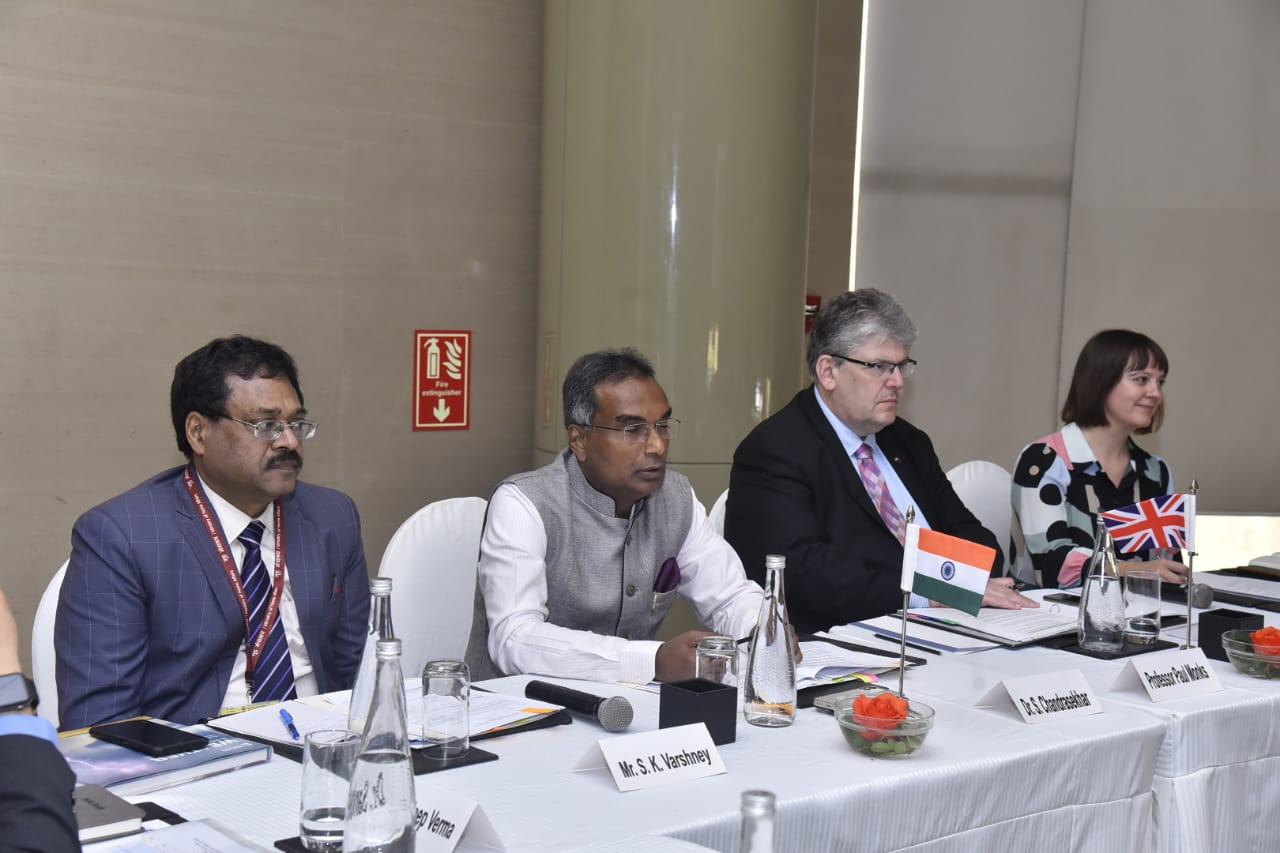The India UK science and innovation policy dialogue discussed the priorities of future India-UK collaborations with focus on strengthening the startup ecosystem, net-zero economy, climate change mitigation and adaptation, sustainable technologies, health innovations, clean energy, R&D translation, and new and emerging technologies.
Dr. S Chandrasekhar, Secretary, Department of Science and Technology, Govt. of India, suggested bringing investors and young innovators together through activities like roadshows so that startups with academic backgrounds can be supported right from the idea stage to commercialisation of the product.
“We believe that global challenges we face today do not respect geopolitical boundaries and hence can be effectively addressed through scientific collaboration and not competition. Indian scientists are globally recognized for basic and fundamental research. But the conversion of research into commercial technologies for wealth creation and lab to market transition is a challenge we need to face head-on,” Dr. Chandrasekhar said.
Dr. Chandrasekhar mentioned that joint research leading to the development of commercially viable products, processes, or services would provide greater returns in terms of economic and societal benefit to the common man and on money spent by the two governments on R&D.
“Today, when India is celebrating the 75th year of its Independence, the roadmap for the next 25 years for India will be determined by scientific and technological innovations in all walks of life,” he added.
Chief Scientific Advisor at the Department of Business, Energy and Industrial Strategy at the Government of UK and UK Co-Chair Prof. Paul Monks underlined that the two countries which have some of the best scientific minds need to work together on using Science & Technology for climate adaptation and mitigation solutions for decarbonising the economy and move towards a net-zero economy which is a key challenge of the future.
British High Commissioner to India Alexander Ellis stressed the importance of S&T in a contested world and said that the two countries which have a strong legacy of collaboration should work on challenges like climate change, health, enabling flow of goods and services, translation of R&D and so on to solve global problems.
Shri Sandeep Chakraborty, Jt Secretary Europe West, Ministry of External Affairs, Govt. of India, highlighted that Science & Technology pervades all areas of cooperation between the two countries and need to be discussed at great length.
The India UK STI Collaboration mainly focuses on human capacity building, joint research, and translating research into applicable technologies.

Shri S K Varshney, Head, International Division, DST, briefed about the modalities of international cooperation and talked about the five major technology missions Cyber-Physical Systems; Electric Mobility Mission, Quantum Science & Technology; Clean Fuels: Methanol Mission, and Map India.
Delegates also discussed possibilities of cooperation in areas like Indo UK Scoping activities on environmental sensors, CCUS technologies, electric mobility, net-zero technologies, advanced manufacturing; revival of industry R&D programme and frontiers of science; new and emerging technologies, participation of women in science, startups and innovations, rejuvenation /strengthening of Newton-Bhabha Ph. D. Placement and other fellowship Programme; India UK Centre of Excellence in Green Hydrogen; female researcher mobility to top UK laboratories (POWER); institutional links for early career researchers, outreach of VAJRA and SIRE programs in UK academic community (international programs).
The policy dialogue was attended by several senior officials from Ministry of Earth Sciences, Council of Scientific and Industrial Research (CSIR), Department of Biotechnology (DBT), Indian Council of Medical Research (ICMR), Science and Engineering Research Board (SERB), Technology Development Board (TDB), India and UK who would in the future interact to take the discussions forward.






























